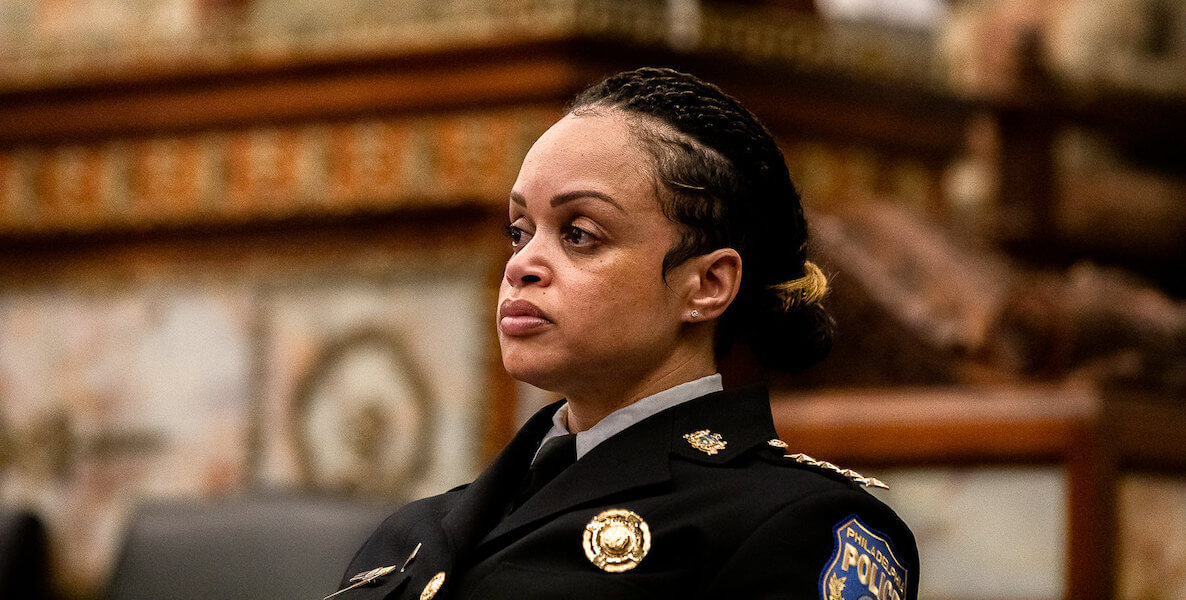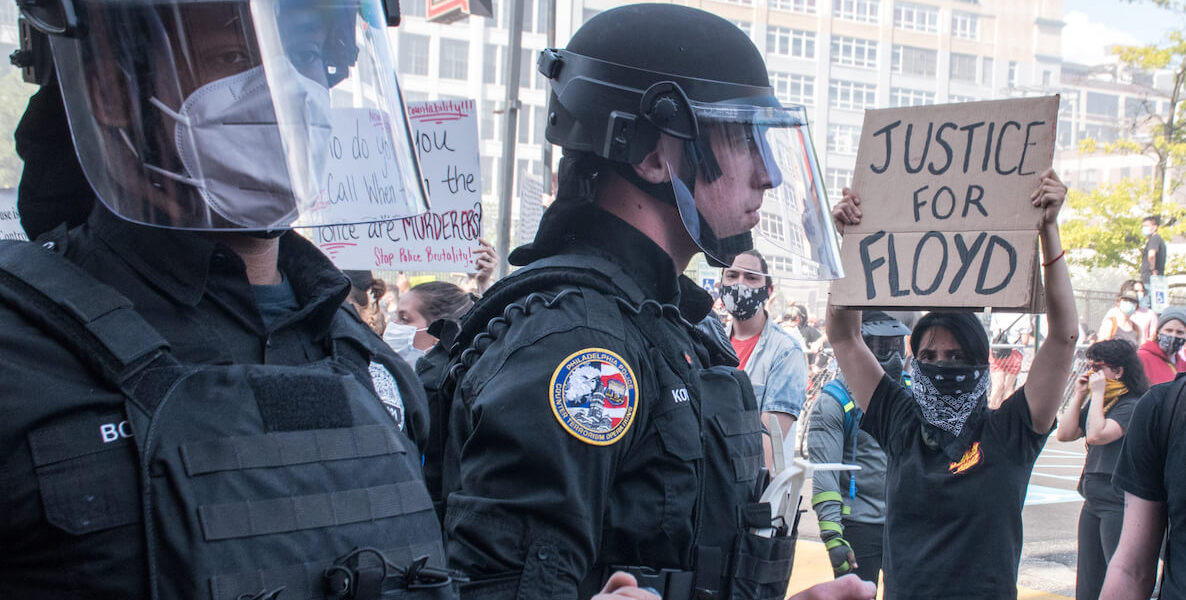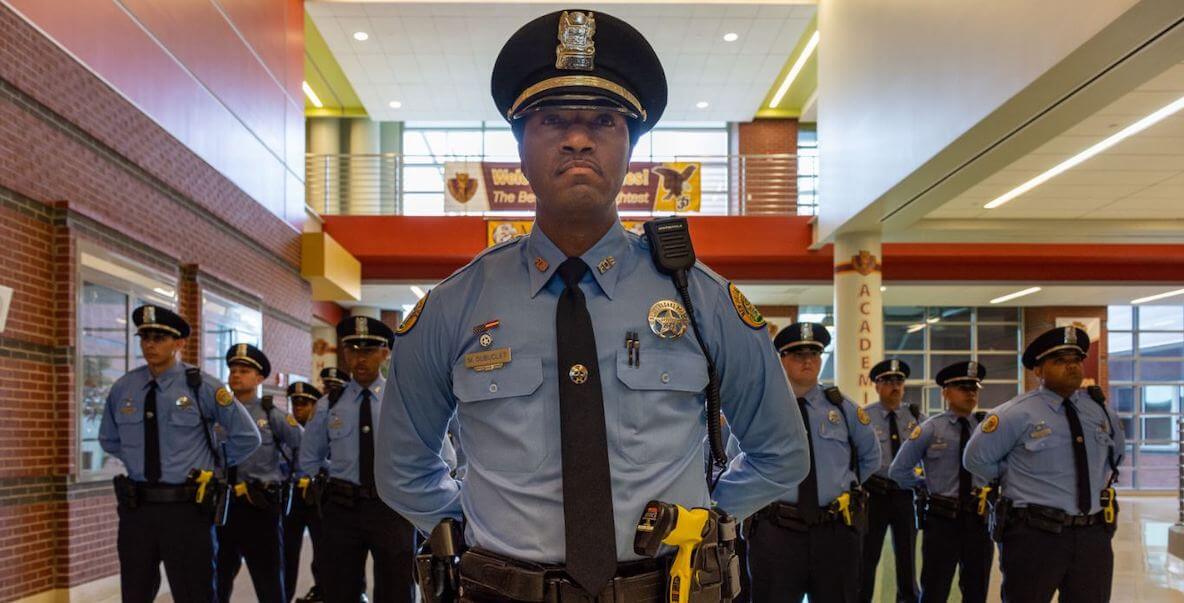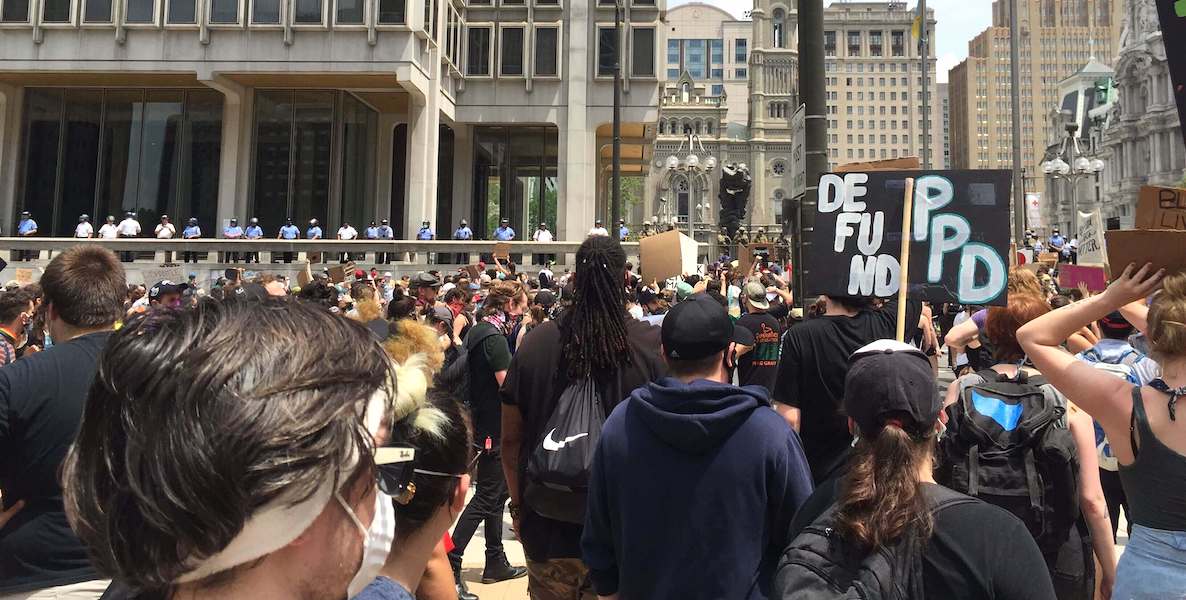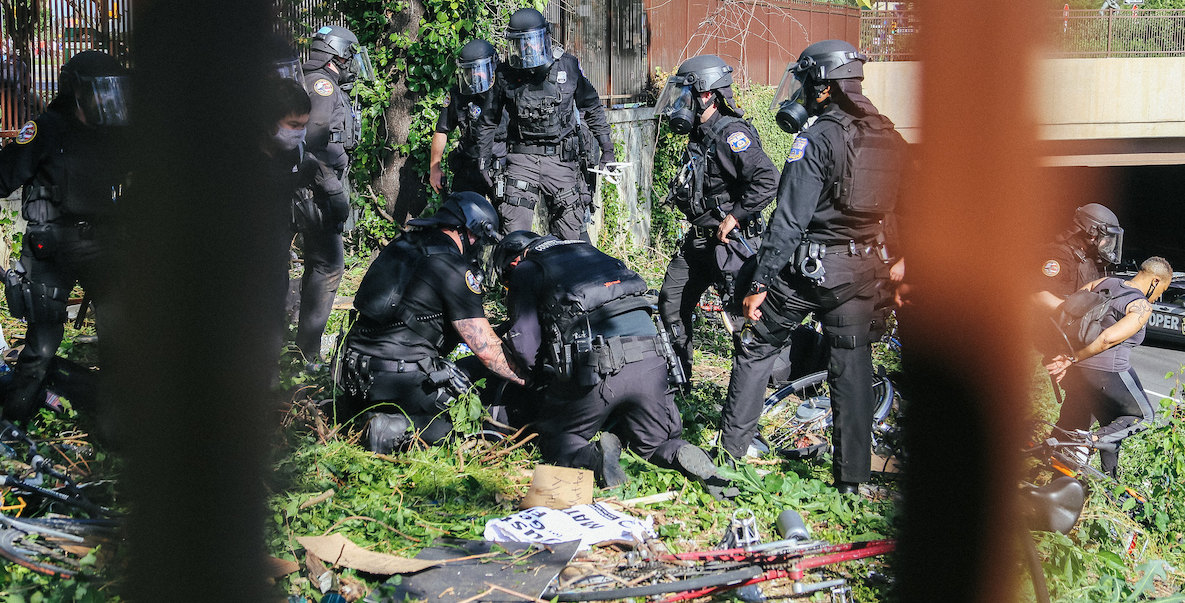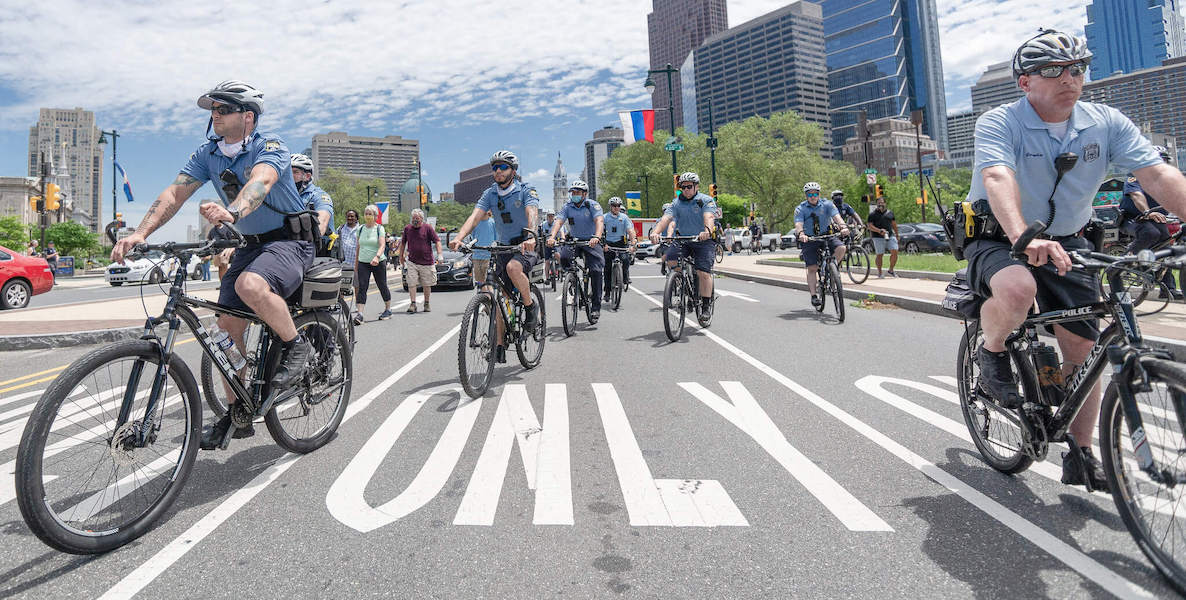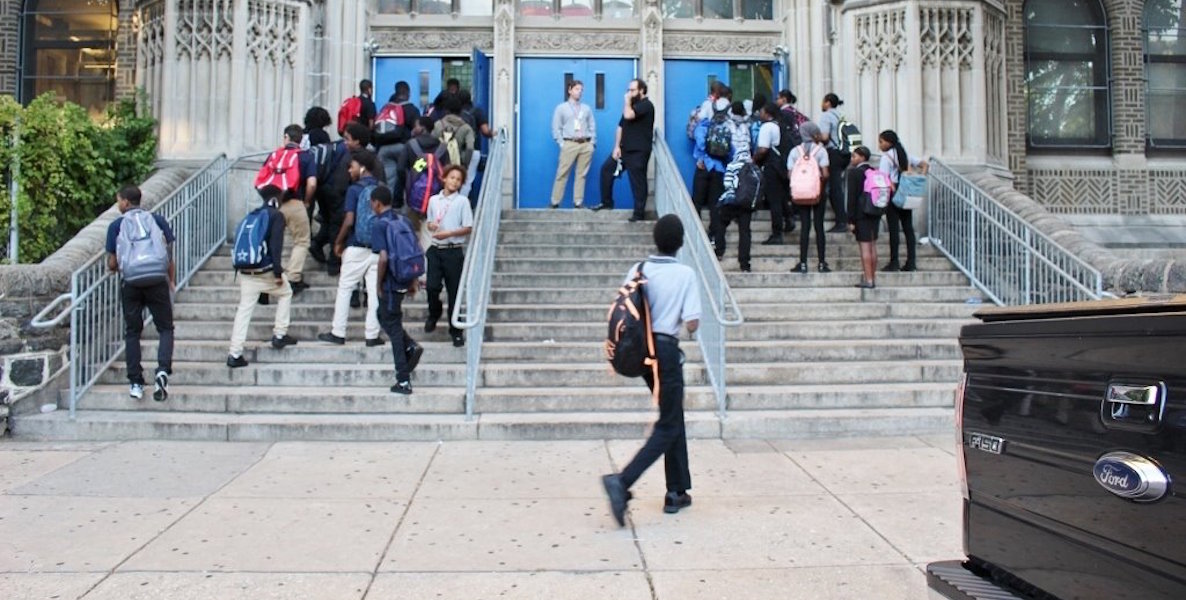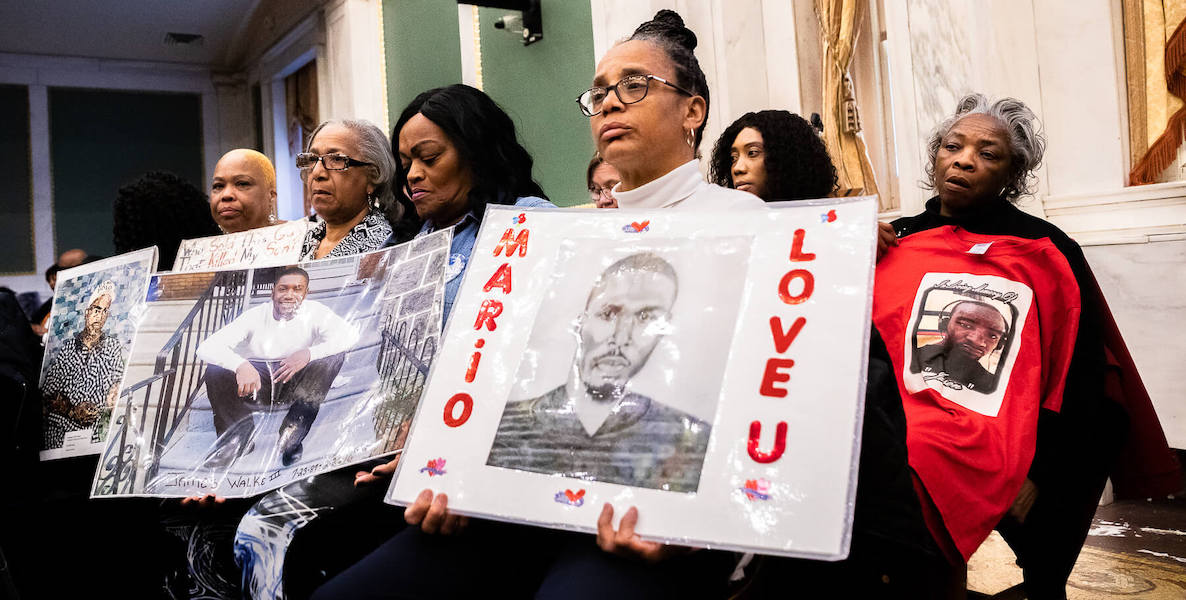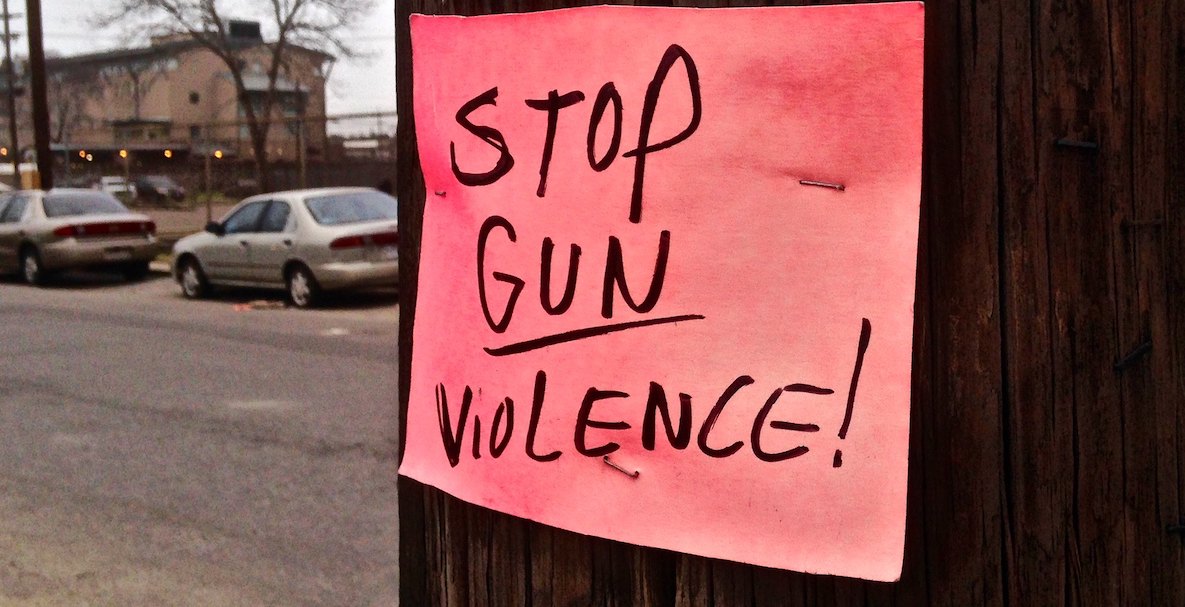![]() If you tuned into last week’s virtual police reform town hall hosted by the Mayor’s Millennial Advisory Committee, you wouldn’t have known that murders in our city are up a whopping 31 percent over this time last year, giving us the second-highest rate in the nation.
If you tuned into last week’s virtual police reform town hall hosted by the Mayor’s Millennial Advisory Committee, you wouldn’t have known that murders in our city are up a whopping 31 percent over this time last year, giving us the second-highest rate in the nation.
Nor would you have known that the spike is not a new phenomenon; the yearly homicide rate under Jim Kenney has grown steadily each year during his mayoralty: by 10 percent in 2016, 17 percent in 2017, 5 percent in 2018, and 6 percent last year.
Last week’s event consisted of two panels. First came a group of legislators: Sharif Street and Joanna McClinton from the General Assembly, Isaiah Thomas and Katherine Gilmore Richardson from City Council. The second panel consisted of Mayor Kenney, Police Commissioner Danielle Outlaw and activist Devren Washington, of the Media Mobilizing Project and Black Lives Matter.
![]() To stipulate: All are committed public servants. This is not to question anyone’s motives or local patriotism. But watching the discussion, a wave of unease came over me. There was a lot of talk about policing the police in their interactions with the public, as there should be. Isaiah Thomas stressed the importance of holding cops accountable by reforming Act 111, the state law which basically lets cops decide the punishments of bad cops.
To stipulate: All are committed public servants. This is not to question anyone’s motives or local patriotism. But watching the discussion, a wave of unease came over me. There was a lot of talk about policing the police in their interactions with the public, as there should be. Isaiah Thomas stressed the importance of holding cops accountable by reforming Act 111, the state law which basically lets cops decide the punishments of bad cops.
But, apparently, the idea of reforming the police does not extend to actually making police better at solving crime and enforcing the law.
Watching the discussion was like living in an alternate universe, one in which chalk outlines and body bags containing young black men aren’t littering our streets and police aren’t failing to make an arrest in six of every 10 homicides. Yes, chances are you can pretty much get away with murder in Philadelphia.
There is no doubt that, in Philadelphia and across the nation, there is an epidemic of over-policing in need of reform. Police have become occupying forces, as demonstrated so movingly in Jill Leovy’s 2015 book, Ghettoside: A True Story of Murder in America. But we’ve forgotten the second part of Leovy’s thesis: yes, the criminal justice system in our cities is oppressive, but also inadequate.
“Forty years after the civil rights movement, impunity for the murder of black men remained America’s great, though mostly invisible, race problem,” Leovy writes. “The institutions of criminal justice, so remorseless in other ways in an era of get-tough sentencing and ‘preventive policing’— like stop-and-frisk—remained feeble when it came to answering for the lives of black murder victims.”
The problem, Leovy argues, is not just the high homicide rate. It’s that so many people who commit murder are never punished. “Where the criminal justice system fails to respond vigorously to violent injury and death,” she writes, “homicide becomes endemic.”
And we become inured to it. At the panel discussion last week, there was urgency, but it was narrowly focused on how police treat the community. There was no similar sense of a call to arms around shootings and murders. You had to wonder: Are we meeting this crisis with our old Philly shrug? Shouldn’t shapers of the Philadelphia daily conversation—mea culpa—make addressing gun violence priority one? Given that the vast majority of homicide victims are African American, shouldn’t All Black Lives Matter?
The problem is not just the high homicide rate. It’s that so many people who commit murder are never punished. “Where the criminal justice system fails to respond vigorously to violent injury and death,” Leovy writes, “homicide becomes endemic.”
At one point, activist Washington, a stalwart proponent for defunding the police, challenged the Mayor and Police Commissioner, calling for widespread layoffs and salary cuts for cops, part of a “choreographed obsolescence.” Outlaw respectfully disagreed.
As I’ve outlined before, her Crime Prevention & Violence Reduction Action Plan actually contains many of the innovative policing strategies that have lowered crime and murder rates elsewhere; problem is, her plan is more wish list than true road map, because so many of the proven programs are not funded. And, if Washington had his way, they’d never be.
Kenney responded oddly, reminding Washington of the “Democratic process,” and noting that “there are four or five Council members who will say they can’t go back to their business community and tell them they’re reducing police…” Not exactly a full-throated defense of what ought to be a Mayor’s job one: Keeping the public safe. In fact, it was tantamount to political pandering: I agree with you, but you know how that business community is…
Outlaw gets that the answer to reforming both how cops treat citizens and whether or not they solve crime revolves around upending a longstanding police culture. It’s ironic, isn’t it, that so much of what cops point to as the causes of lawlessness on our streets—the no-snitching ethos, the macho warrior mentality that elevates every sign of disrespect into violent conflict—afflicts cop culture, as well, with its blue wall of silence and the parade of cell phone videos showing men in uniform somehow seeing themselves as victim and angrily acting out.
What we know, from the last two decades of stunning turnarounds in crime fighting, is that proactive, data-driven policing drives down crime rates. And what a new generation of reformers have shown, as nearby as across the river in Camden, gives credence to the old saying by management guru Peter Drucker: Culture eats strategy for breakfast.
That’s why much of Outlaw’s (unfunded) plan revolves around changing police culture. For example, in partnership with the Baltimore Police Department, she touted that she’ll be bringing an ABLE—Active Bystandership for Law Enforcement—pilot program to Philly, a peer intervention platform that inculcates a tradition of self-policing among cops.
It’s comforting that Outlaw is seeking the guidance of Baltimore Police Commissioner Michael Harrison, who previously turned around the corrupt and failing New Orleans Police Department. It’s become commonplace to conclude that all cities are seeing the kind of spike in homicide that Philly, Chicago and New York are currently undergoing.
But there was Harrison a couple of weeks ago, testifying before his City Council and announcing that homicides were down 3 percent and shootings 13 percent. “Please do not take these two particular stats as anything other than a simple presentation of the numbers,” Harrison said. “I am neither touting nor celebrating these figures.”
Watching the discussion was like living in an alternate universe, one in which chalk outlines and body bags containing young black men aren’t littering our streets and police aren’t failing to make an arrest in six of every 10 homicides.
Harrison took over a police force a year and a half ago filled with cops reacting to the post-Freddie Gray reforms by purposefully depolicing. Talk about bad vibes; Baltimore’s cops would passive aggressively stay in their cars, causing arrests to plummet and crime to soar. A survey of West Baltimore residents found that they felt “over-policed yet under-served.”
Since then, Harrison has governed with a carrot and stick approach. He took on the old boy’s club by reducing overtime spending by $2.6 million, yet at the same time he takes 20 different officers every month to lunch at a trendy restaurant high atop the city’s skyline for a frank discussion about what it really means to protect and to serve.
“I tell them, this feeling that you have on the 15th floor of this building, overlooking the city with this beautiful view and people serving you in tuxedos, is the level of excellence and service I expect from the department,” Harrison told the Baltimore Business Journal.
He’s also invited the business community into his mission. “I need help in figuring out how to change [cops’] thinking so that we run this 3,500-person organization much like you run your organizations,” Harrison told business leaders.
![]() Harrison has fought the overly simplistic calls for defunding and is, instead, just trying things. When he saw that five years of data indicated that 33 percent of all robberies, shootings and homicides took place in 5 percent of the city, he created “micro zones” and deployed personnel according to need.
Harrison has fought the overly simplistic calls for defunding and is, instead, just trying things. When he saw that five years of data indicated that 33 percent of all robberies, shootings and homicides took place in 5 percent of the city, he created “micro zones” and deployed personnel according to need.
A controversial $2.2 million air surveillance program, paid for by Texas philanthropists Laura and John Arnold, finds a private company flying over high crime areas and recording images to help police investigate crime. As you might imagine, it’s met its fair share of criticism, but in a crisis, just about every possible cure should be on the problem-solving table, no?
It’s hard to tell if Harrison’s experiments are directly related to Baltimore’s murder dip, but at least he is projecting an activist, all-hands-on-deck leadership style. As is his state’s Republican Governor, Larry Hogan, who last year, calling the city’s escalating gun violence rate “completely unacceptable,” opened a Violent Crime Joint Operations Center in the city. It consists of 200 “strike force” officers from 16 federal and state agencies to help local police fight crime and gangs. Tom Wolf has not been nearly as engaged here.
It’s ironic, isn’t it, that so much of what cops point to as the causes of lawlessness on our streets—the no-snitching ethos, the macho warrior mentality that elevates every sign of disrespect into violent conflict—afflicts cop culture, as well, with its blue wall of silence and the parade of cell phone videos showing men in uniform somehow seeing themselves as victim and angrily acting out.
Washington, the activist, is right when he says the answer can’t just be law enforcement. But the political winds are such that we may be exacerbating the problem, not solving it. Already, progressive City Council members Helen Gym, Kendra Brooks and Jamie Gauthier have voiced support for a budget next year that would reimagine public safety by cutting the PDP budget while increasing funding for neighborhood-based violence-intervention programs.
![]() This at the precise moment that Inquirer columnist Helen Ubiñas, bless her heart, has once again exposed many such programs, and the city office that funds them, as an unaccountable sham. For three years, Ubiñas has called on the Office of Violence Prevention to report out the efficacy of the programs it funds with millions of tax dollars. For three years, we’ve gotten stonewalling. This is what we’re going to replace the cops with?
This at the precise moment that Inquirer columnist Helen Ubiñas, bless her heart, has once again exposed many such programs, and the city office that funds them, as an unaccountable sham. For three years, Ubiñas has called on the Office of Violence Prevention to report out the efficacy of the programs it funds with millions of tax dollars. For three years, we’ve gotten stonewalling. This is what we’re going to replace the cops with?
Sounds like pandering to me. Gym et al are right that you can’t just arrest yourself out of the many ills that pervade inner cities. But neither can you abandon the goal of keeping the streets safe for African-American citizens and taxpayers.
The Black Philadelphia residents I know don’t want their cops defunded or their police forces abolished. They just don’t want to get their heads bashed in by those sworn to protect them. And they want the same level of customer service as in the suburbs. How about we take a cue from Commissioner Harrison in Baltimore and start there?
Photo by Jared Piper / PHL Council


